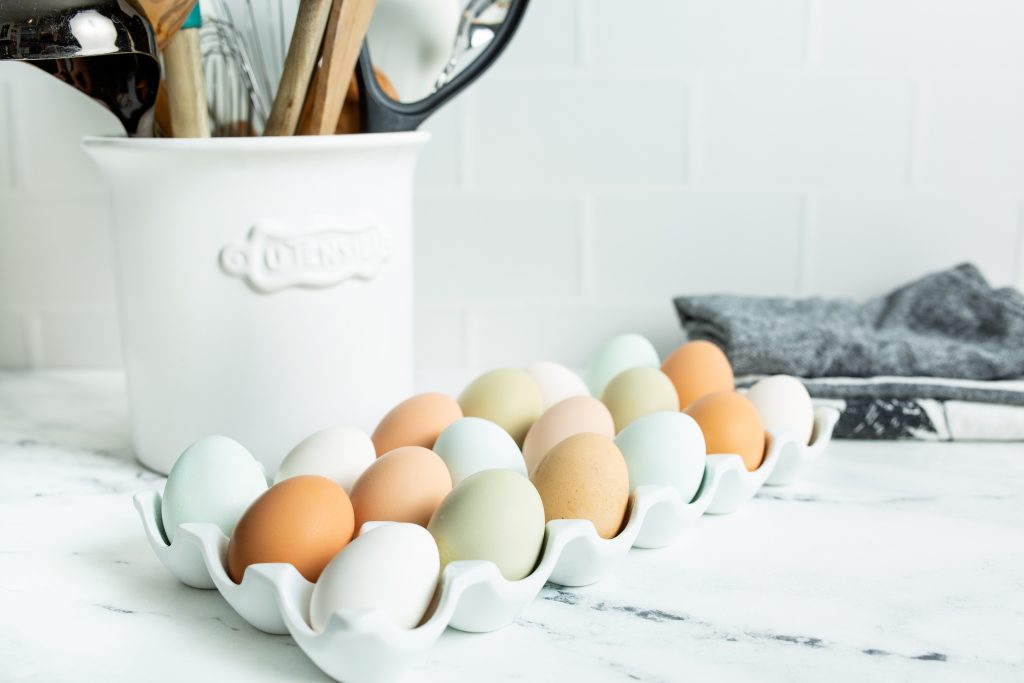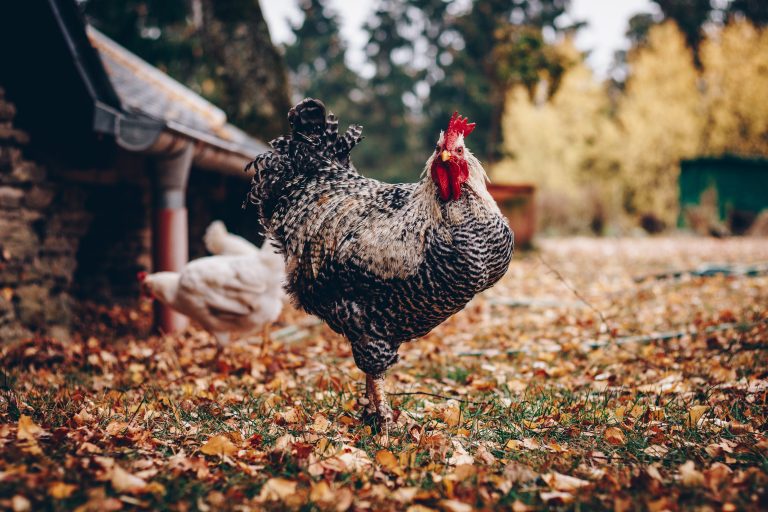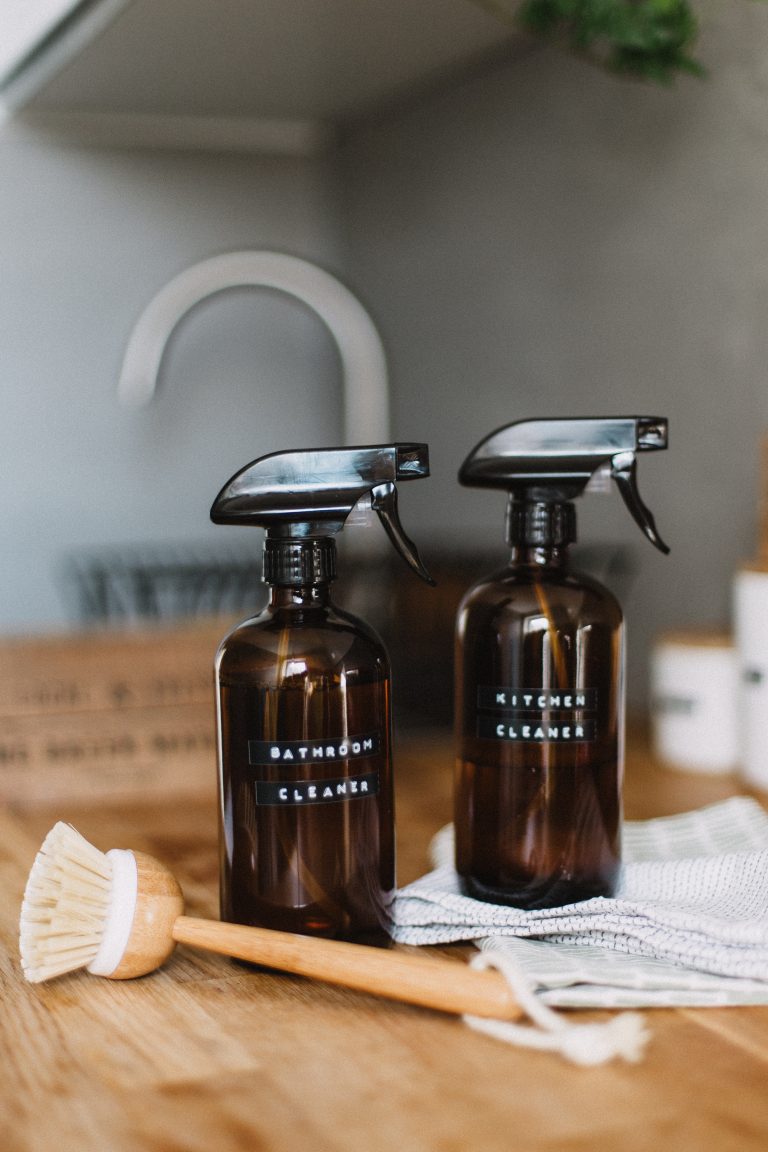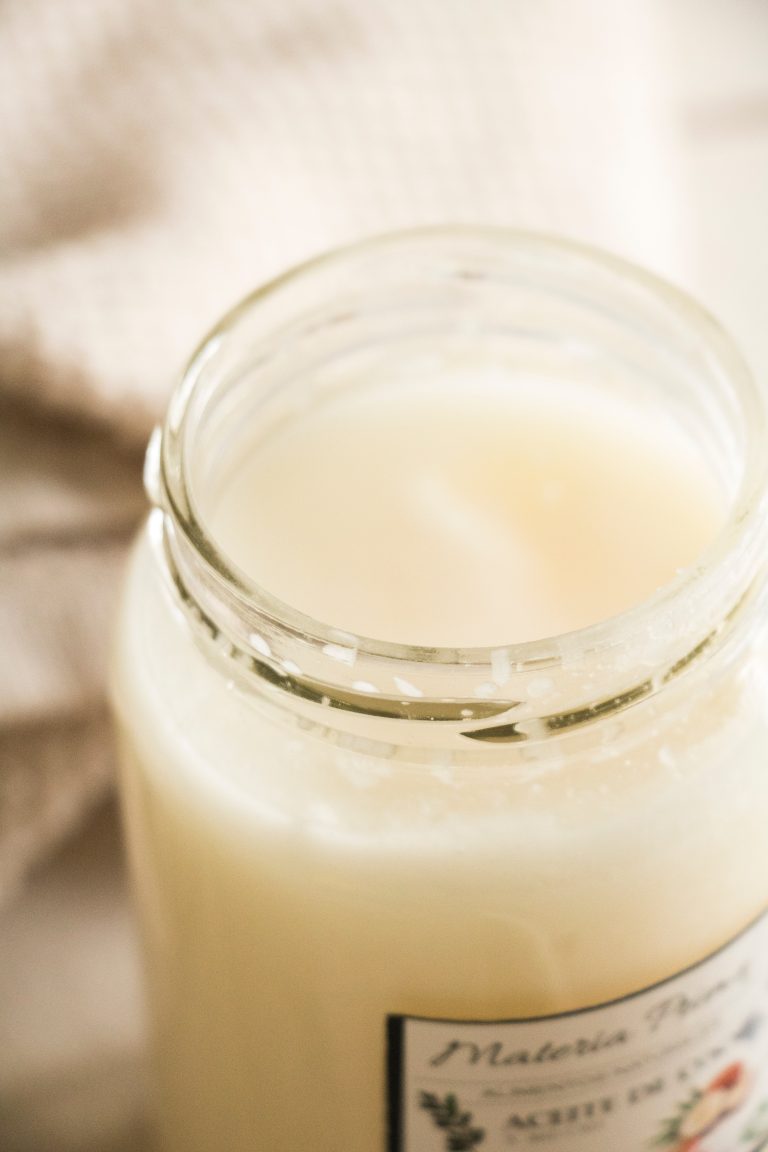Farm Fresh Eggs
This post contains links to affiliate websites, such as Amazon, and we receive an affiliate commission for any purchases made by you using these links. We appreciate your support!
If there’s a question, we have an answer for you in this post with everything you need to know about farm fresh eggs. Whether you’re raising your own, or obtained them in a CSA, farm stand, or other means – you’ll find everything you need to know about them here. From storage solutions to expiration dates and cleaning to our favorite recipes, it’s all here.

In today’s world of convenience, there’s something undeniably special about farm fresh eggs. These golden gems, collected from happy hens raised on local farms or in your own backyard, offer a world of benefits. From their exceptional flavor to their superior nutrition, farm fresh eggs are worth celebrating.
Benefits of Farm Fresh Eggs
More flavorful
Farm fresh eggs boast a taste that’s second to none. Their vibrant yolks and rich, robust flavor add depth to your culinary creations. Experience the difference for yourself by incorporating these eggs into your favorite recipes.
More Nutritious
Farm fresh eggs are nutrition powerhouses. They’re rich in vitamins, minerals, and essential amino acids. Plus, they have higher levels of omega-3 fatty acids and antioxidants compared to their store-bought counterparts. This nutritional boost can benefit your family’s overall health.
Extended Shelf Life
Unwashed farm eggs will last around 2 weeks at room temperature and 3 months or more in your refrigerator. That’s way longer than store-bought eggs!
The truth about store-bought eggs
Store-bought eggs are all clean and beautiful upon pickup, due to in part how they are washed – in bleach. Stores aren’t going to sell eggs covered in fecal matter. However, the process of chicken factories includes a rinse and soak of eggs in bleach. Due to an egg shell’s porous nature, that means your eggs are actually retaining bleach. That is one reason why there is a color difference between farm fresh eggs versus commercialized eggs. See the photo below.
How to clean farm eggs
Here’s one of the really interesting things about farm fresh eggs: you don’t have to clean them. WHAT?! I know, it sounds crazy and of course, I’m not suggesting that an egg covered with chicken poop finds itself hanging out on your counter. But the truth is eggs by nature have a protective coating on them. This protective coating is there to preserve the eggs and is there until it is washed off. Store-bought eggs have been washed in solutions of bleach.
How use all those eggs
Worried that if you decide to raise chickens you’ll end up with too many eggs? No such thing!
Start your day right with classic egg-based breakfast dishes like fluffy scrambled eggs, hearty omelets, or a creamy quiche. Farm fresh eggs lend an exceptional richness to your morning routine.
In the world of baking, eggs play a pivotal role. Whether you’re whipping up cakes, cookies, or bread, farm-fresh eggs provide that perfect texture and flavor.
Tips for Perfect Hard-Boiled Eggs
- Room Temperature Eggs: Begin with eggs at room temperature to prevent cracking during boiling.
- Salted Water: Add a pinch of salt to the boiling water for easier peeling.
- Ice Bath Finish:
- After boiling, immediately transfer eggs to an ice bath to halt cooking and achieve perfectly tender yolks.
How to tell if it’s a bad egg
You can detect the freshness of your egg with the float test!
Submerge eggs in water: if they sink and lay flat, they’re fresh; if they stand upright or float, they’re past their prime.
How to preserve farm eggs
Farm fresh eggs are incredible when it comes to shelf life as we discussed above. But what about preserving them for a long winter when chickens stop laying? Let’s discuss…
Water glassing eggs is a nifty old-school method of preserving fresh eggs for an extended period. It’s like giving your eggs a cozy, long-term home in a protective environment. Here’s how to do it:
- Gather Your Supplies: You’ll need some fresh eggs, water glass (sodium silicate), a large crock or glass container with a lid, and water. You can find water glass at hardware stores or online.
- Prepare the Water Glass Solution: Mix one part water glass with nine parts water. For instance, if you have a cup of water glass, add nine cups of water. Stir it up until it’s nicely blended.
- Fill Your Container: Pour the water glass solution into your crock or glass container. Make sure it’s clean and dry before you start.
- Add the Eggs: Carefully place your fresh eggs into the solution. Ensure that the eggs are completely submerged. You’ll notice that the eggs might float a bit, but don’t worry, that’s normal.
- Seal the Container: Cover your container with a lid or a tight-fitting piece of plastic wrap. This helps create an airtight seal to keep out any pesky air and contaminants.
- Store in a Cool Place: Find a cool, dark spot to store your container. A cellar, basement, or root cellar is perfect for this. The temperature should ideally stay around 45-55°F (7-13°C).
- Check Regularly: Every few weeks, take a peek at your water glassed eggs. If the water glass solution becomes cloudy or starts to evaporate, you can top it up with a little more of your mixture (1:9 water glass to water).
That’s it! Water glassing eggs is a fantastic way to keep your farm-fresh eggs fresh for many months, allowing you to enjoy their goodness even when the chickens take a break from laying during the winter. Just remember to mark the container with the date so you can keep track of the egg freshness.
Farm fresh eggs are a culinary treasure, offering unbeatable flavor, superior nutrition, and endless possibilities in the kitchen. With these tips and insights, you’ll unlock the full potential of your farm eggs, ensuring you savor their goodness all year round.




